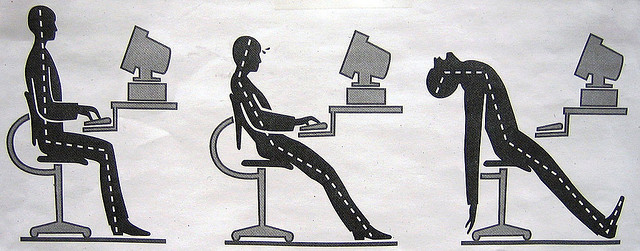
In a recent excerpt from her book The Tumbleweed Society: Work and Caring in an Age of Insecurity featured in Salon, sociologist Allison Pugh discusses how the insecure economy has made employees feel wary of their employers but also like they must rush to their defense. Employees often bend over backward to identify with their bosses and meet their needs, but employers are much less likely to reciprocate. What do employers and employees owe each other?
The move away from the old social contract, in which employees traded loyalty and effort for job security, has resulted in real and perceived job insecurity among may adults for whom full-time work is a central piece of identity. Pugh says the result of the opposing trends of increased job insecurity and increased cultural importance of full-time employment is lots of anxiety for employees and a “one-way honor system.” Employees still feel obligated to uphold their end of the social contract by demonstrating loyalty and hard work, they don’t expect the same commitment from their employers. Even those with the lowest-skill and lowest-paying jobs empathize with the employers’ needs for good workers and expect little beyond dignity, respect, and a paycheck.
Part of the reason for the one-way honor system is the perception that intense work commitment is an integral part of being an honorable, moral person:
Survey researchers report, for example, that about the same percentage of women as men—70 percent of full-time working women (both white-collar and blue-collar workers)—say they would continue to work if they suddenly had enough money to live comfortably for the rest of their lives, known as the “lottery question” (and used by researchers as a rough proxy for a work ethic). A strong work ethic was part of good character, part of being fully human, no matter your gender, people maintained.
In other words, it’s not the job itself that’s the source of dignity, it’s the work ethic. So as jobs get more precarious, many people work longer and harder instead of slacking off, partially because they fear those who don’t work hard enough or produce enough will be the first ones to lose those coveted jobs.

Comments 1
Veronika — February 26, 2024
Career is of great importance in the life of each of us. Be honest with your employer. You will definitely be asked about your strengths and weaknesses. The advantages that you mention should be related to the future position. When talking about shortcomings, you don't have to talk about the biggest failures in your life. Find more valuable career advice here